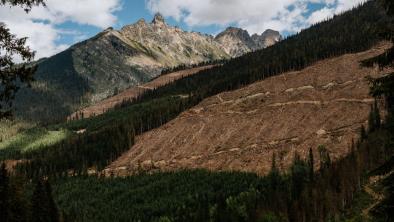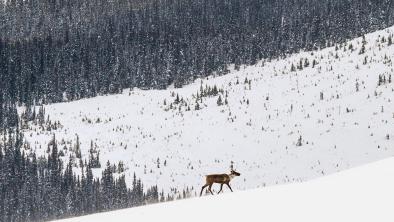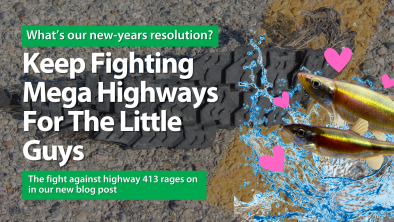Tria Donaldson: B.C.’s wild salmon need our help to thrive
The long journey that salmon take every year has always amazed me. Small and vulnerable, juvenile salmon make their way from streambeds to the open ocean. Years later, they somehow find their way back to spawn in the same rivers where they were born. Their four-year journey from birth to death takes them from rivers far in the interior to the deep ocean and back again. During their amazing life cycle they play a critical role in nourishing the people and wildlife of this province. First Nations people, orcas, eagles, bears, and our forests all depend on the life-giving feast of wild salmon. They are the knot that ties our ecosystems together, the foundation that everything else is built on.
I am not alone in my wonder at wild salmon. Over 70,000 people have visited the Adams River to stand on the banks and witness the most bountiful sockeye salmon run in almost 100 years. This year’s Adams River sockeye run is a little miracle; one made all the more special because of the collapse of last year’s run. These sockeye returned to fill the clear water with their brilliant red bodies, to fight the currents and search for the perfect spawning bed to continue the miraculous cycle of salmon. They returned to feed eagles, bears, and other critters with their nutrient-rich carcasses. With their return they send a strong message: our wild salmon stocks can and will thrive, despite all the pain and trouble we put them through.
Wild salmon used to be plentiful in hundreds of rivers across B.C. Habitat destruction and urban sprawl have created many “lost streams” where salmon used to breed, but no longer do. Over the last 10 years, the rate of return in the key Fraser River run has been steadily declining. Last year’s devastating collapse of the very same run that is so bountiful this year shows us just how fragile salmon are—and how little we know about the systems that support them.
Views on sockeye inquiry
Celia Brauer: A commission of experts, but is it good for sockeye salmon?
Craig Orr: Crisis is perfect time to invest in future of Fraser River sockeye salmon
Andrew Gage: Saving B.C. sockeye salmon will require tough changes
Mary Ellen Walling: Blaming salmon farms glosses over bigger issues in sockeye decline
Last year, the federal government launched the Cohen Commission of Inquiry into the Decline of Sockeye Salmon in the Fraser River in order to investigate the collapse of the 2009 run. Justice Bruce Cohen’s investigations and recommendations will help determine the future of how we, as a nation, will deal with wild salmon.
Justice Cohen has a multitude of issues to wade through. From dams on rivers to warming oceans to pollution to clear-cuts altering their habitat, everything we do impacts wild salmon. Above all else, it is clear that factory fish farms are having an impact on wild salmon.
These open-net cages pack in thousands of salmon, creating a breeding ground for disease and parasites, such as the infamous sea lice. Juvenile salmon are especially at risk of contracting diseases and sea lice infestations. Research has shown that up to 95 percent of juvenile pink salmon migrating past sea lice-infested fish farms in the Broughton Archipelago die. Despite the peer reviewed scientific evidence and mounting public concern, governments have been slow to take action to protect this precious resource.
And now it is up to Justice Cohen to determine whether or not we stand up and protect them, or if we give up on our precious wild salmon stocks in favour of foreign-owned industrial fish farms. The Cohen inquiry will open its evidentiary hearings next Monday (October 25) here in Vancouver. And we the people will be there, and will make it clear that thousands are watching the decisions of Cohen. Our coastal communities, First Nations people, and ecosystems deserve salmon runs like this every year on every river, where the water teams with wild salmon returning home. This year’s run shows that our wild salmon bounce back—but we need to help them.
Next Monday, you can join Alexandra Morton, Grand Chief Stewart Phillip, Chief Bob Chamberlain, and many more at the Vancouver Art Gallery at noon to mark the opening of the Cohen inquiry. Together, we will demand justice for wild salmon.
Tria Donaldson is a youth climate activist that has been involved with the goBeyond project, the Sierra Youth Coalition, and the Canadian Youth Climate Coalition. She is currently the Vancouver Island outreach coordinator for the Wilderness Committee.


